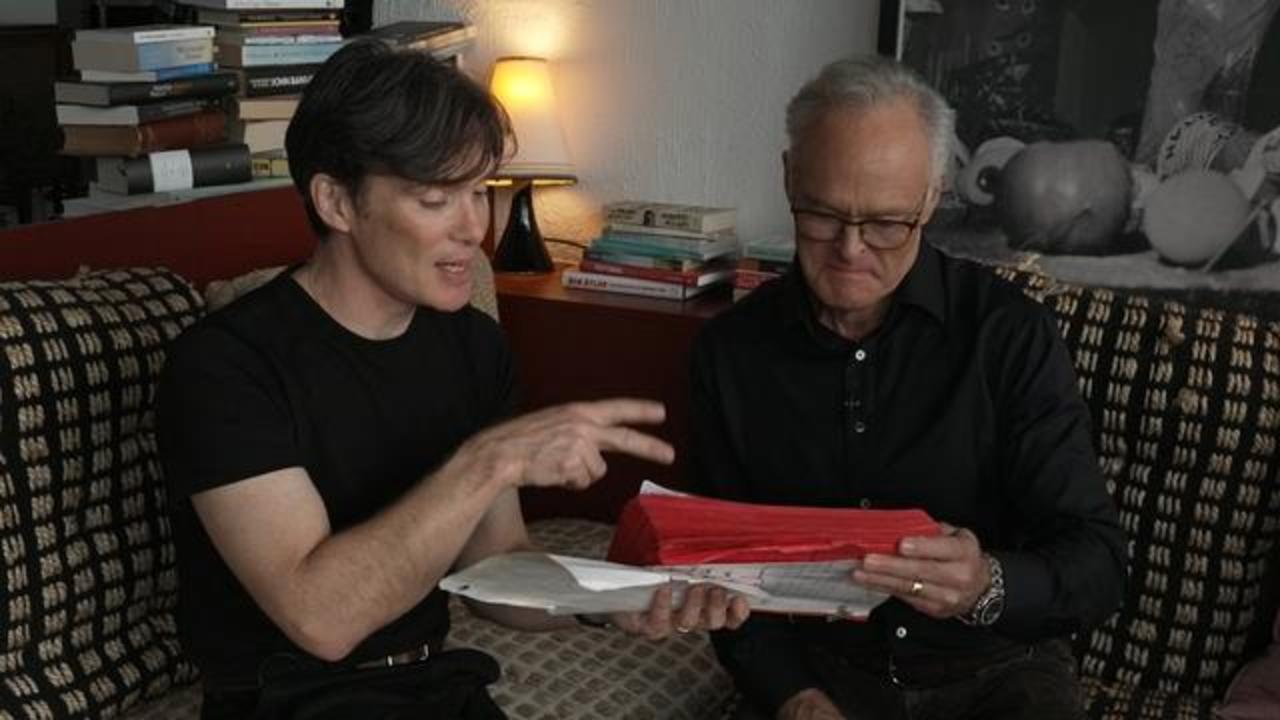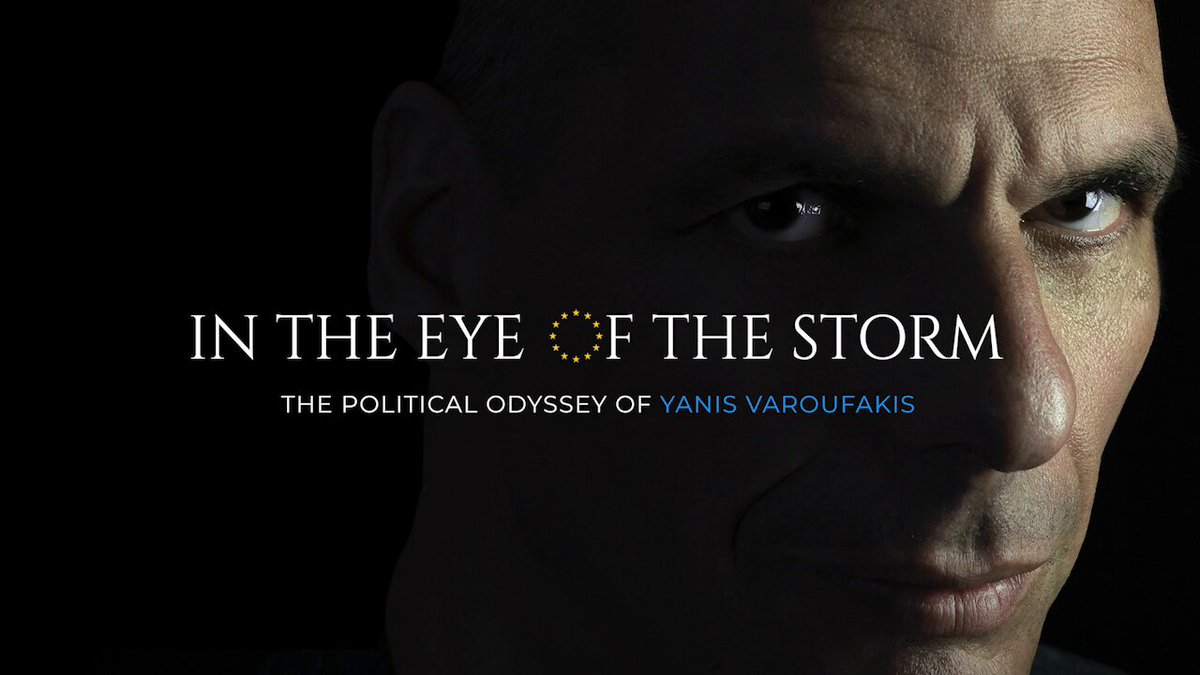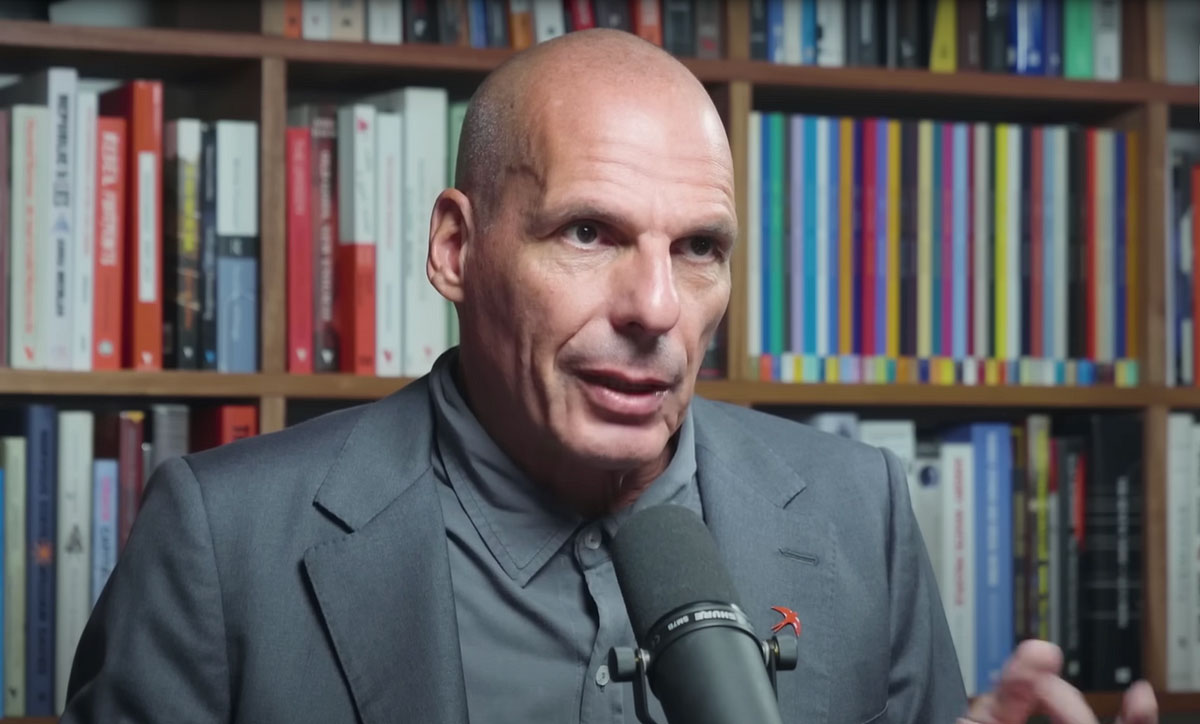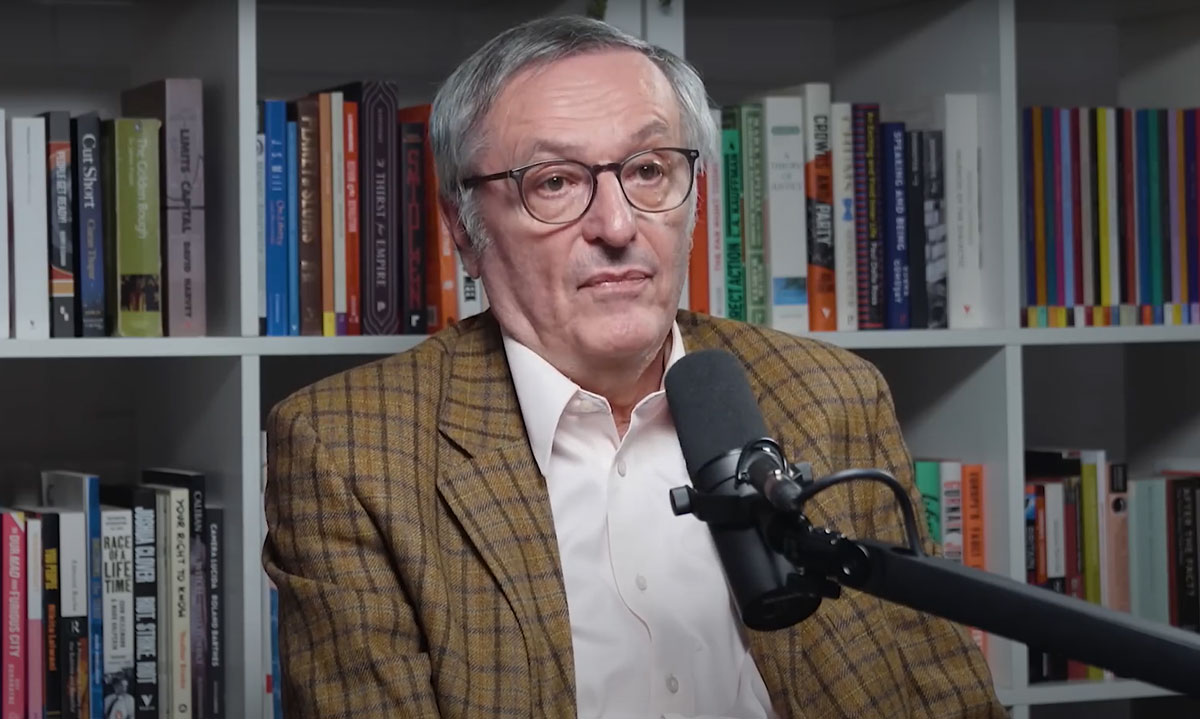by Bud Scoppa
TOM PETTY & JEFF LYNNE got to know each other in the traditional manner, sitting around with acoustic guitars. Little did either know that these casual strumming sessions would lead directly to a pair of offbeat projects—the Traveling Wilburys and Petty’s first-ever solo album, Full Moon Fever, both produced by Lynne. The Wilburys and Petty albums have a couple of things in common: Each is a big-hearted celebration of the commonplace, and each is a perfectly realized manifestation of its makers’ intent. In another time, all this work outside the scope of the band might have caused jealousy among the Heartbreakers— guitarist Mike Campbell, drummer Stan Lynch, keys player Benmont Tench and bassist Howie Epstein—but they’ve been as busy as their bandleader on a variety of projects. Campbell, in fact, co-produced and engineered Full Moon Fever. Now, locking in to the momentum of the Wilburys smash and their separate accomplishments, the five veterans have reunited to prepare for a summer tour, and it’s likely that they’ll finally be recognized as America’s premiere rock & roll band.
Petty discussed the Wilburys in an earlier issue (Art & Commerce, March 25). In the following interview, he talks, in a genteel drawl, about his solo album, his songwriting process, his relationships with collaborators old and new, and the quality of his life these days.
You’ve been a busy guy in the last year. What was the genesis of all this work you’ve been doing?
It all started with me and Jeff. Bugs [Alan Wiedel, Petty’s old friend and equipment managerj got me this 12-string acoustic guitar, and me and Jeff would just sit in the living room and play and sing and it’d sound really good. And sometimes George [Harrison] sat in with us, and we just got into this thing of all playing acoustics.
The solo album was really a predecessor of the Wilburys. The Wilburys was a different thing, but it was kind of the same vibe and style, and was taken from that spirit. Most of the solo album [nine of the 12 tracks] was done beforehand. And then the Wilburys rolled into my life, and by the time that was over, I wanted to add some to the solo album. I just came back to it with a fresh outlook. We also made it sound better, worked on it a little bit.
I’m glad you added to it. Otherwise, the album would have seemed too slight.
It just wasn’t ready yet. I was thinking of it as something not so serious. I just thought, this is something that happened and let’s just put it out. And then when I played it to the record company, they came back sayin’, “Look, this is good stuff, you could expand it and make it really good. We’ll put it out if you want us to, but we’d really like it to be longer and have some more songs.” By that point I was doing the Wilburys and I said, “Fine, great, because I know I’ll have some songs by the time this is over.” And I did.
To me, this album is your Beatles for Sale. It’s hooky, acoustic- guitar-driven rock & roll.
That’s sort of what it is. I always listen to the Beatles. I’m a big fan. I listen to them still today.
Your cover of [the Byrds’] “I’ll Feel a Whole Lot Better” is quite faithful to the original except for the stretched-out ending. But just hearing those classic 12-string riffs played so enthusiastically—it shouldn’t work but it does.
I couldn’t think of any other way to do it. I just thought, no, you don’t play around with this. This has gotta be done that way. We saw the Byrds—I went to see them in Ventura with Jeff, and we heard that song. I’ve played half my life. It was a little nerve-wracking to do a record of it, because you want it to sound real good. You gotta hit it or it just doesn’t work.
You got those Gene Clark vocal twists down perfectly.
It was easy, because I’ve sung it so much. The Heartbreakers never do it, but I’d done it when I was just a teenager.
I thought, that’s a 24-year-old song, and there are gonna be kids who aren’t even 24 listening to this. So why not?
And plus I thought, if this was gonna be a solo album, I wanted to touch on lots of little things that I’d done, styles that I like. And I thought, shit, I gotta represent them somewhere in here, and what better way? Let’s just do it for the fun of it.
That song is the most literal representation, obviously, but all through the album there are subtle references to your sources of inspiration. Like the Beatlesque “ooohhhs” in “Yer So Bad.”
That’s basically what I was tryin’ to do, was just take simple songs, like sorta ’60s-ish songs, and put ’em in some kinda contemporary context where it’s not nostalgic. I wanted this to just kind of be a little personal fun album. Not too fun—I wanted to have some meat on the bone, too—but I didn’t sweat it. The songs came really easily, most of’em.
Did you have things prepared beforehand when you recorded?
I usually had the song written, I think on everything. I would write the song, usually with Jeff there, and we’d play ’em on our acoustics, and then we’d go over to Campbell’s garage and say, “OK, guys, we got one, goes like this.” Then we’d just start workin’ it out with the band. Campbell did almost all the engineering. Campbell’s a real hotshot engineer.
Is he the guy who plays that teardrop guitar solo in “Face in the Crowd”?
Yeah, that’s a 10-string that he bought in Antigua or somewhere. It was layin’ on the floor. You could fire arrows out of the neck of this thing, it was so bowed, but we said, “C’mon, try a bottle on that thing.” And he was out there bitchin’ about, “My God, it sounds like a truckload of Cubans driving by,” because the slide’d bounce on the thing—but what a sound it was. Those claves are good, too. Jeff Lynne put ’em through a harmonizer and tuned ’em to the key of the track, so they’d make this little note every time you hit ’em, and that lent to the eeriness of it all.
While you were doing this album, were you thinking commercial?
No, I didn’t think about it. I’m scared of doin’ that. I try not to do that, because usually I don’t ever do anything good tryin’ to do that. I just think that’s the tail waggin’ the dog, really.
Lynne gets co-writer credit on the majority of the songs on Full Moon Fever. What was the nature of the collaboration?
It went all different ways. Sometimes he might not do much at all, he might have just helped me arrange the track, or… Usually Jeff could come up with those couple of chords that made all the difference in the world. He’s such a brilliant, brilliant arranger; I’ve just never seen anyone like him in my life that can just hear something and put it together so nice for you. I’ve learned a lot from him. And then sometimes, you know, he did a good half of the song, like “I Won’t Back Down.” He came in humming the tune and said, “Listen to this tune.” And I went, “Oh, that’s nice,” and we actually wrote that while we were mixing another one in the studio. So he had a lot to do with that. We work very naturally together. We’d never dreamed we would. But we’re pretty good pals, me and Jeff, really, pretty tight. ’Cause he’s just a good fella, an all-around good fella, and we liked so much of the same records that we just got on somehow, and we just kept writing songs. We wrote ’em all. We’d do one, and then we’d go back to the house, sit around one night and write another one, go back to the studio the next day.
When people hear “I Won’t Back Down,” they’ll probably figure, well, that’s his anthem. He’s talkin’ from the heart on that.
Yeah. I am. That’s really just like me, that kinda song. That one was so much like me that it almost put me off for a minute. But you can’t fight things that just pop out of you, either. And I liked it, you know? I heard it back and it made me feel like, I won’t back down—so I thought it was good. You can’t try not to be yourself. I think sometimes that I would be self-conscious about bein’ myself. There was a time when if I’d written that song I’d say no, that sounds too much like him. But with this album it was just very natural, it was fun to do it. Jeff Lynne, he brings so much enthusiasm to makin’ a record. I’ve never seen anyone who enjoyed bein’ in a studio that much. It’s almost like he just plugs into his lifeline when he goes in there, and he just loves it, you know? And that rubs off, starts rubbin’ off on everybody, and it’s great to have a new guy in the room. You really do try to do a little better when there’s somebody new around. It brought the best out in us, really.
From a critical point of view you just haven’t been getting your due—not since you got big, really. The press completely ignored Let Me Up (I’ve Had Enough), which was one of the best albums of 1987, and one of your best ever. How do you assess that record in retrospect?
That album? I love that album. It’s a good rock & roll album. It didn’t get the attention that I’d hoped it would. It sold OK, but I was thinking this was some of the best stuff we’ve ever done, and so I don’t know what to say about that. Maybe it’s true, maybe since I’ve got big they don’t look at me in the same light. It’s hard to be popular and have the critics like you, too. Because they seem to always gravitate, naturally so, to the newer scenes. I think they like to have something in their back pocket, and go, “Hey, heard this? Heard this?” And it’s not as much fun to walk up and go, “Heard Madonna? It’s fucking great,” you know? It’s just not the same. Though I think they’ve been pretty fair with us, but I do sense a lack of enthusiasm. I wish that they’d been more enthusiastic about that record. But it’s still there, if you want to get one. I still like it.
Me, too. I like it a lot, especially “My Life/Your World.”
Great song, that one.
At the time I figured MCA was saving it for the second single.
I didn’t get a second single, I don’t think. I was on tour, so I don’t know what happened, but I was really let down with that. I’ve done it long enough not to get too hurt over it, but I was let down. I just thought, boy, we really did a good job on that album, ’cause only five people played everything and that’s so rare, but it’s so hard these days because you live in a world with more and more radio stations going to oldies. We’re primarily an FM group. They don’t play us on [Top 40] much. More and more they go to oldies and then they may play your new record, but they just play it once in the day. And I’m not knockin’ the radio, that’s just what’s goin’ on. So if you don’t have a big hit single— and I think we only hit the top 20 with “Jammin’ Me,” which still amazes me—it’s hard to really get much attention.
AOR, the format that supported this band through its entire lifespan, is no longer powerful enough to make a record happen. So what happens is, you gotta have a hit single. A lot of bands do this very consciously; with others I guess it just happens, like the Wilburys.
But the Wilburys never had a hit single. Not yet.
Really? “Handle With Care” wasn’t a hit single?
I don’t think it made the top 40. And neither did “The End of the Line.” But people bought the record and are still buying the record, so that’s very encouraging to me, that maybe there’s an audience that’s gonna go, “Well, I’m just gonna get one anyway.” And MTV playin’ it helps. But I thought “Handle With Care” was gonna be this huge single, you know?
Sounded like a #1 record to me.
If ever there was one, that’s it. But I remain mystified at why… I think it’s because they get the records and they want ’em all to sound alike, at those [Top 40] stations. I’ll probably get in terrible trouble sayin’ this, but it does seem like they want it all to sound like those dance records they’re playing in most of the major urban areas. And it’s very tough for a group like us to get one in. We’ve never survived on hit singles, really, though we’ve had some. And we always do get them up in the top 20, usually. But it’s real hard for us to get it. I don’t know. Maybe they think we’re dangerous [laughs].
Well, you come out of that era where the band makes a record, it gets played on album radio, you go out on tour and people buy mega-units. And since that has eroded, your sales have suffered, to a certain extent. Although I’m sure you still get a decent paycheck at the end of the day.
We do pretty good. I think that last one sold a million if you count Europe and everything. But it’s true what you’re saying. We’re lucky in that we still sell enough to get by. I think the Heartbreakers have a pretty loyal core of fans—extremely loyal, really—that always come out. It’s reachin’ everybody else that’s the hard part.
How do the Heartbreakers feel about all this outside stuff you’ve been doing?
They’re all pretty busy, so they weren’t really around that much. Mike was. But I don’t know how they feel about it. I don’t think they were elated when I said I was gonna make a solo album. I don’t think they were crazy about the idea. They weren’t negative about the idea. I can see their side, ’cause then when it wound up I was gonna be in the Wilburys too and that was gonna take time… But I really needed to get out and just do some stuff, just to clear my head, anyway. We’re all still friends. We actually did some sessions a few weeks ago, some Heartbreakers sessions. We did three days just to kinda feel out the studio, and see what we might wanna do, and we wrote a couple of songs. But their album, the next one we do, I really want that to be something pretty good. It’s time to just bear down on that. So I’m not really in any hurry to finish that; I’m just gonna get into it and work real hard on it. Because they’re so good—they are, they’re really good. I couldn’t conceive of going on the road with anybody else—it’d just be redundant. I’d just be trying to get somebody else to sound like them. So I’m just determined to make a really great record that you have to pay attention to.
Who’s gonna produce?
I wouldn’t want a producer. The Heartbreakers are really different than what I’ve been doing in the studio. When I go to play with them, it’s a different kinda music because people play a lot more. There’s people playin’ stuff all over the place. And you just have to learn how when one guy stops another guy gets in, and it’s just a natural chemical reaction that they have. So they’re really not an easy band to record in some senses. I think a producer’d only get confused cornin’ in. And they’re pretty headstrong too.
But they’re so good. Sometimes with them I’ll just make songs up, start playin’ a song, and by the chorus they not only can play the song, Howie can sing the harmony. And it just blows my mind. How ballsy, ya know? He has a mike right in the middle of the room with the drums goin’ and everything. I mean, I only knew what the title was two lines before, and he’s got it, and he’s singin’ the harmony to it! It’s great.
What about the idea of having Lynne produce the next Heartbreakers album?
Could work, if they would be open to the input. The Heartbreakers aren’t the most open-minded people as a group. They’re pretty damn stubborn, really, so I don’t know. I think that could be great, myself. I’ll probably get in trouble here, but I think that could be great. It’s very hard, it’d be a lot harder to produce the Heartbreakers than to produce me. That’s tough, that’s really tough. So I don’t know if they would respect Jeff cornin’in and gettin’be-hind it. I mean, I’m just talking theoretically. I think it’d be wonderful for them, really. Because I think he is just cornin’ into his prime musically—he really is, with all he’s done. He’s really just hittin’ his stride of what he can do.
I get the impression that you’re really enjoying yourself right now.
I love what I’m doin’. Man, I’m the happiest guy in music [laughs]. Gosh, I mean, I get to play with all these guys that I’ve just admired my whole life, and they’ve become my friends, which is unbelievable. And good friends, and people that really enriched my life for coming into it, in many ways. And I’ve got a great group, and they still let us make records. So I don’t have much to complain about. I don’t, really. I’m not gonna pretend that I’m… You know, I get pissed off and have my bad days like anybody else, but overall I’m happier than I’ve been in years.
I’m fairly confident now, I think. We’ve been through an awful lot. We’ve been through so much that it’s just been hard to… Our life now, like me and Jane, we’re just—we’re on the run, fast, you know, we’ve got so much goin’ on, but we kinda dig it in a way. The kids are used to truckin’ around the world. And we’ve done it long enough to where we know how to do it and survive, and not get too burnt from it. So I’m really enjoyin’ life, really….
Cash Box Magazine, April 29, 1989




